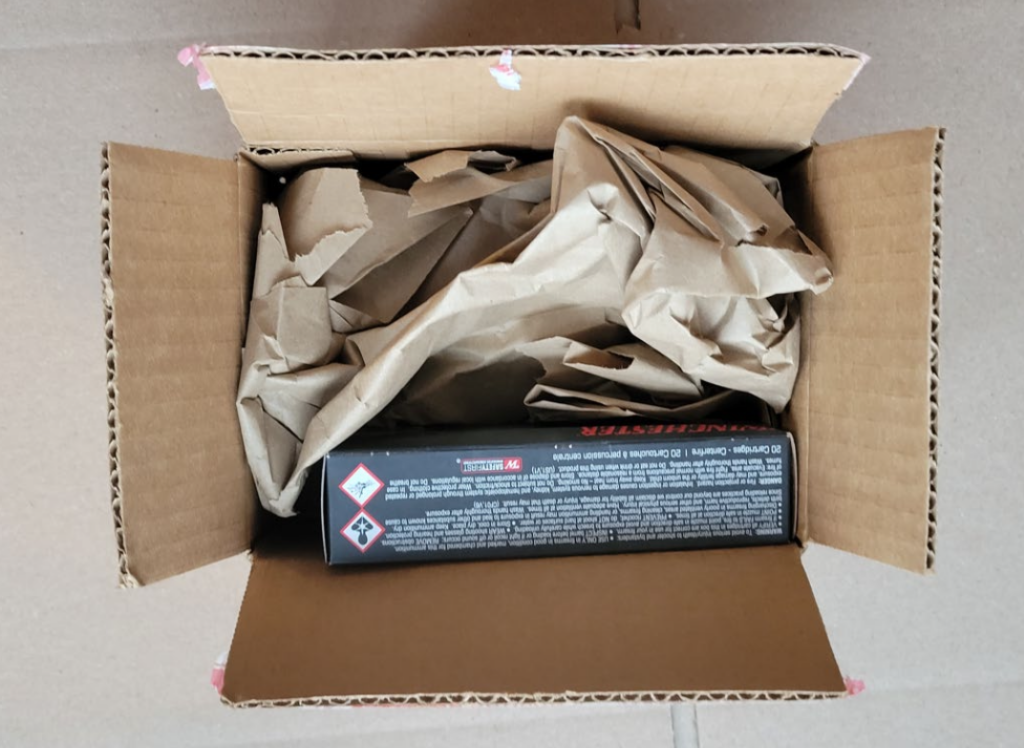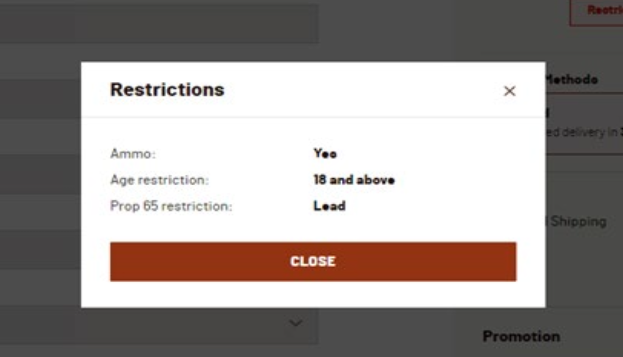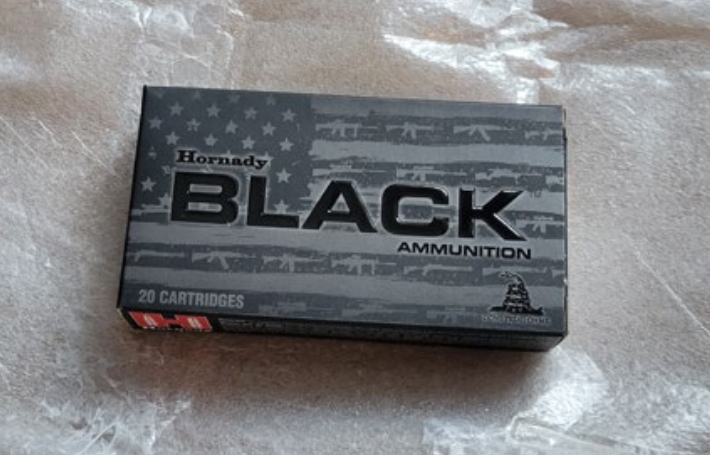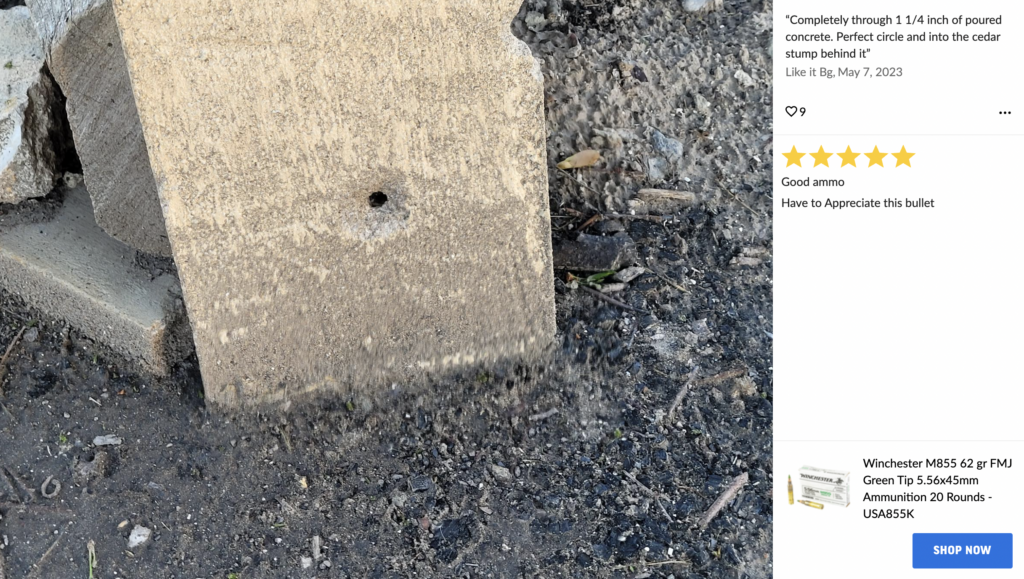On the morning of May 18, 2018, a 17-year-old armed with a shotgun and handgun walked into Sante Fe High School in Santa Fe, Texas, and shot and killed ten of his classmates and teachers, and wounded another 13, in one of the country’s deadliest school shootings. Before the shooting, the 17-year-old shooter purchased his shotgun and handgun ammunition online using his real name, address, and a prepaid gift card.
According to federal law, licensed manufacturers and dealers cannot sell rifle or shotgun ammunition to anyone they know or have reasonable cause to believe is under 18 years old, or handgun ammunition to anyone they know or have reasonable cause to believe is under 21 years old. It’s also illegal for any unlicensed individual or entity to sell ammunition suitable only for use in a handgun to anyone they know or have reasonable cause to believe is under 18.1Note: Six of the seven online retailers in this study appear to have Federal Firearms Licenses (FFLs) as of this writing. But many ammo dealers do not have FFLs. But these laws were written before the internet existed, and thus do not specifically address the kind of impersonal online sales that are now possible. In the deadly example noted above, before carrying out his attack in Sante Fe, the underaged shooter purchased his shotgun and handgun ammunition without even needing to leave his home. Instead, as alleged in a lawsuit brought by Everytown Law, online retailer LuckyGunner did not require him to provide any form of identification or prove his age. In fact, LuckyGunner’s automated system approved the sales in less than two minutes.
Eight states have enacted laws that seek to account for ammunition sales as they occur in the age of the internet. Some states require background checks on all ammunition sales. Other states have established permitting schemes to ensure that customers are old enough to purchase ammunition. And other states require sellers to verify state-issued identification cards to verify eligibility. Online ammunition dealers have largely either complied with these local requirements or opted not to sell ammunition in those states altogether. Still, an outdated regulatory scheme continues to be the only standard in place in the overwhelming majority of states — such as Texas, where LuckyGunner sold the ammunition used in the Santa Fe shooting.
LuckyGunner’s past conduct begs the question: What do other online ammunition sellers — who have no in-person interactions with customers, and typically only automated checkouts — do to ensure they are not selling ammunition to those who can’t legally purchase it, including minors and convicted felons? As it turns out, not much that we could observe. This report details an investigation by the Everytown for Gun Safety Support Fund (“Everytown”) of several major online ammunition retailers which found that none appeared to verify a purchaser’s age or that they could legally purchase ammunition. At most, some of these sites bury the legal requirements of purchasing ammunition in their terms and conditions, or they have a checkbox that a purchaser must click — but none of these measures do anything to prevent a minor from checking out of the site with ammunition.
To make matters worse, ammunition can be shipped directly to individuals in most states, removing any need for customers to visit a brick-and-mortar store.
Websites in other industries employ a variety of age verification tools. To prevent minors from buying alcohol, online retailers typically require that customers first submit some form of government-issued photo identification. The same is true for gambling websites and tobacco e-tailers. Only after receiving that information and verifying its authenticity, sometimes through a third party dedicated to the task, will these sites proceed with a sale or allow someone to place a wager. In fact, a number of independently tested and verified services exist to verify customer ages at the point of online sale for very low costs.2See the Age Verification Providers Association for more details about available age verification technologies: https://avpassociation.com/. Another strategy used by the alcohol industry is to require proof of age at the point of delivery.3See Drizzly, “Alcohol delivery in New York,” accessed March 4, 2024, https://drizly.com/alcohol-delivery/ny/new-york-city/re77. But as we have uncovered, except where expressly required by state law, ammunition sellers appear to largely eschew any of these strategies in their online marketplaces. For these vendors, it appears an unverified click asserting age eligibility is enough to complete a sale.
To see if major online retailers prevent sales to underage customers, Everytown investigators purchased .223 Remington ammunition — the most common caliber for AR-15-style weapons — from seven different companies that sell ammunition online. The purchases were made by an adult well over 21 years old and from a state that does not place restrictions on ammunition sales. Of the seven online retailers, none requested that the customer prove their age by supplying a driver’s license, for example, before completing the transactions.
A small number of online sellers in specific age-restricted industries may conduct covert age verification on the back end of an online sale (i.e., not observable to a consumer). Circumstantial evidence, however, strongly suggests that online ammunition sellers are generally not conducting any such covert age verification. First, best practices provide that any such verification research on the back end of a sale be disclosed in the terms and conditions or privacy policy of the site. In examining the online ammunition sellers profiled below, we found no mention of covert age verification on their websites. Indeed, it would be surprising to learn that online ammunition companies were not disclosing covert research on their customers, especially considering the privacy arguments often advanced by Second Amendment advocates in policy debates. Second, there have been several publicly reported instances of young people — who would have been restricted had their ages been verified — buying ammunition sold online.
When purchasing .223 Remington ammunition from BH Ammo, the buyer had to check a box to affirm that they were at least 21 and legally allowed to own the ammunition. But BH Ammo did not request proof of age, such as identification, from the buyer. The rifle rounds were delivered to their doorstep eight days later.

Brownells, one of the largest online retailers of firearms, parts, and ammunition in the gun industry, processing “thousands of orders every day” from its Iowa headquarters,4Kevin Hardy, “The new face of Iowa’’s international gun dealer,” Des Moines Register, April 6, 2016, https://www.desmoinesregister.com/story/money/business/2016/04/06/brownells-new-gun-store-stands-out-off-interstate-80/82335176/. offered a similar experience. While checking out on the Brownells website, a “Restrictions” pop-up noted that customers must be 18 to purchase ammunition, but the website did not ask for the purchaser’s age — or even provide a mechanism to enter it — to complete the transaction. Three days later, the ammunition was delivered.

Another retailer, Firearms Depot, did not ask any questions about the customer’s age during the transaction, and the ammunition was delivered a week later.

To purchase ammunition from Global Ordnance, a company with a “long history of supplying military grade ammunition worldwide,”5Global Ordnance, “About,” accessed March 4, 2024, https://globalordnance.com/about/. customers must click a box agreeing with the site’s terms and conditions, which require that ammo purchasers be at least 21 and provide an “adult signature” upon delivery. “If no signature is requested, the customer must provide valid identification for age verification.”6Global Ordnance, “Terms,” accessed February 5, 2024, https://globalordnance.com/terms/. When the ammunition was delivered six days after it was purchased, the delivery driver obtained the customer’s signature without asking for identification.

Guns.com, one of the largest online marketplaces for guns, ammunition, and related gear, asks if prospective customers are at least 18 when they enter the site, and during the checkout process, Guns.com asked the buyer to affirm that they were at least 21 when purchasing .223 Remington ammunition. But the site did not require any proof of age in both instances. The day after it was purchased, the ammunition was delivered to the buyer’s doorstep.
Outdoor Limited, which bills itself as “Your One Stop Shop for All Your Ammunition Needs” and includes a separate tab for bulk orders,7Outdoor Limited homepage, accessed February 5, 2024, https://www.outdoorlimited.com/. asks if prospective customers are at least 18 years old before they can visit the homepage, but no proof of age is required. When purchasing ammunition, customers must agree to the site’s terms and conditions, which require that customers be at least 18 or 21 to purchase long gun or handgun ammunition, respectively.8Outdoor Limited, “Terms and Conditions,” accessed February 5, 2024, https://www.outdoorlimited.com/terms-and-conditions/. But again, the site did not require any proof of age. Eleven days after completing the transaction, .223 Remington ammunition was delivered to the investigator’s door.
Finally, Palmetto State Armory, a large company that manufactures and sells assault weapons, gun parts, and ammunition online and through its own brick-and-mortar stores across Georgia, North Carolina, and South Carolina — and has appealed to boogaloo extremists in the past — asks customers if they’re at least 18 years old when they first enter the site but does not require proof of age. Like some of the retailers here, Palmetto State Armory also asks that ammunition customers agree to the company’s terms and conditions9Palmetto State Armory, “Terms & Conditions,” February 5, 2024, https://palmettostatearmory.com/help-center/terms-conditions.html. before proceeding with the sale. But no proof of age was required for the investigator, and .223 Remington ammunition was delivered six days after it was purchased.
The lack of precautions employed by the ammunition industry raises particular concerns given the specific products they sell. For years, firearm and ammunition manufacturers and sellers have used the U.S. military and law enforcement to advertise and legitimize products to civilians, in what’s known as the “halo effect.” Potential customers, including young men drawn to risky, thrill-seeking behavior, are told that they can become heroes and protectors simply by purchasing firearms — or in this case, play out soldier fantasies with military-grade ammunition.
A review found that six of the seven retailers in this study sell military-surplus AR-15 ammunition produced at the Lake City Army Ammunition Plant on their websites, including BH Ammo, Brownells, Firearms Depot, Guns.com, Outdoor Limited, and Palmetto State Armory. Last fall, a New York Times investigation revealed that the government-owned, contractor-operated Lake City facility, which is currently run by Winchester and allowed to sell surplus ammunition to civilians, had produced rifle ammunition used in a dozen mass shootings involving AR-15s, including in Aurora, San Bernardino, Las Vegas, Sutherland Springs, Parkland, Pittsburgh, Midland-Odessa, Indianapolis, Denver, Buffalo, Uvalde, and Colorado Springs.
In other words, six of the seven retailers make it easy for underage customers to obtain the same “military-grade and [U.S.] military-subsidized” AR-15 ammunition — particularly .223 Remington and 5.56mm NATO rounds — used in some of the country’s deadliest mass shootings.
As The New York Times noted, the Buffalo shooter specifically mentioned Lake City’s military-grade M855 5.56mm NATO ammunition in his diatribe, calling it “the best barrier penetration ammo I can get.” Known as “green tips,” these rounds were designed for military use — to penetrate steel helmets and light barriers at a distance10Bulk Munitions, “All About M855 Green Tip Ammo,” February 9, 2023, https://bulkmunitions.com/blog/m855-green-tip/. — but are sold to civilians. Winchester even markets them as “Penetrator” rounds.
Brownells advertises Lake City ammunition as being “[m]ade in the USA at the famous Lake City Army Ammunition Plant, under Winchester’s supervision…to strict military specifications.” The ammunition is “trusted by law enforcement and military personnel around the world” and is “perfect…for target shooting and training.”11Brownells, “Winchester USA Lake City M193 5.5mm Rifle Ammo,” accessed February 7, 2024, https://www.brownells.com/ammunition/rifle-ammunition/usa-lake-city-m193-5.56mm-rifle-ammo/.
Outdoor Limited offers 500-round boxes of Lake City’s .223 Remington and 5.56mm NATO ammunition — and even .50-caliber rounds that are used by the military to disable enemy vehicles, including aircraft, and other material targets at great distances.
To illustrate the danger of this military-grade ammunition, one person who left a five-star review for Lake City “green tip” 5.56mm ammunition on Palmetto State Armory’s website included a photo showing a bullet hole in concrete. The reviewer noted that the bullet had traveled “completely through” 1.25 inches of poured concrete and “into the cedar stump behind it.”12Palmetto State Armory, “Winchester M855 62 Gr FMJ Green Tip 5.56x45mm Ammunition 20 Rounds – USA855K,” accessed February 7, 2024, https://palmettostatearmory.com/winchester-62gr-green-tip-lc-5-56-ammo-20rds-usa855k.html.

The seven retailers included in this review represent a tiny snapshot of the thousands of ammunition dealers operating online and in storefronts across the United States. It is difficult to assess the true size of the ammunition market because only those who import or manufacture ammunition are required to obtain Federal Firearms Licenses (FFLs), not dealers.
But the findings of this investigation speak to a larger problem: Ammo dealers are not taking observable steps — and almost certainly are not taking any steps — to properly vet their customers to ensure that they can legally sell them ammunition. Today, it is far too easy for minors and others prohibited from owning firearms to evade the minimal restrictions in place on these websites and stockpile ammunition. In many cases, all it takes is a credit card and a shipping address.
Online ammunition sellers can use standard online age verification tools to ensure purchasers are of legal age, including requiring government-issued identification from customers.13Age Verification Providers Association, “How do you check age online?” accessed March 4, 2024, https://avpassociation.com/avmethods/. Such online age verification is commonplace, most recently with the explosion of online sports gambling. More specific to ammunition sales, the online seller LuckyGunner, after litigation over the issue, agreed to “maintain an age verification system at the point of sale for all ammunition sales” in which “anyone whose age cannot be verified or who is verified to be under 21, is refused a sale.”
Other online ammunition sellers would be well-advised to follow suit — not just because it is the right thing to do, but also because, absent some mechanism for age verification, with every sale to an underage purchaser they take a significant legal risk of liability for violating federal law if the minor then misuses the ammunition to harm others.
In the absence of voluntary corporate responsibility by online ammo sellers, policymakers should examine ways to expressly mandate online age verification for ammunition sales. A number of states have already taken action. For example, Connecticut, Illinois, Massachusetts, New Jersey, New York, and Rhode Island, and Washington, D.C., require customers to present a firearms permit, identification card, or safety certificate to purchase some or all types of ammunition. Additionally, California, New York, and Washington, D.C., require that ammo sales be conducted in-person through licensed dealers who check the customer’s identification and/or run background checks. These lifesaving measures help ensure that ammunition doesn’t fall into the wrong hands.